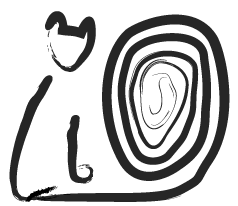
I spent too much of my day exploring the history of pandemics via this list of links from Pocket. It made me think about how our relationship with death and contagion has changed since antibiotics and vaccines became widespread.
Now it is, in the developed world at least, unusual for kids to have a friend who died from a childhood illness. Stepping on a nail, skinning your knee, cutting your finger in the kitchen, all those little accidents are unlikely to turn fatal. Even malaria is treatable.
For those of us who live in the developed world, our lives are just a lot safer. That’s what makes this so shocking to our modern sensibilities. We are no longer used to the idea that there is an illness stalking us, and we don’t know how to fix it. It almost feels like an affront. How dare this disease come along and have no known effective treatments? Where does it get off not being curable? There is an unspoken collective idea that things like this aren’t supposed to happen, anymore. This is a 1920 problem, not a 2020 problem.
And with the pandemic comes a terrifying larger question. Have we been living in a lull? It’s easiest for us to believe that our relatively safe, well-nourished, reasonably healthy, peaceful times are the result of trending progress. We’ve got a one-way ticket to some kind of utopia, and the train of history is moving us steadily towards it.
But what if that isn’t true? What if we are in for one of history’s brutal setbacks, like the fall of the Roman empire? What if, instead of more countries becoming developed, developed countries are becoming less so, with a mind-bogglingly wealthy elite reaping all the benefits of progress, and the masses falling further and further behind?
The pandemic undermines our faith in a bright shining high-tech future. We suddenly can’t help but see other trends that don’t bode well, especially our polarization and the rise of nationalism around the world, and our changing climate.
We have been living in a bubble. A happy little bubble, where we didn’t have to worry so much about the existential threats that have been with humanity from the beginning. We thought we were conquering history.
But in the long run, history is the ultimate borg. It turns us all into itself. And we have no evidence that trends toward a safer world will continue. We might have to get used to the idea that nothing and no one are really safe, ever, again.
